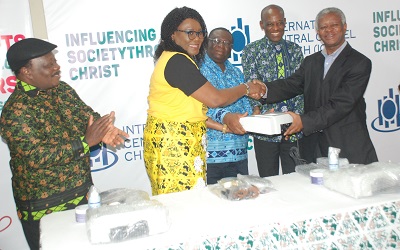
The Mental Health Authority has received three Electroconvulsive Therapy (ECT) machines to augment the treatment of mental health patients in the country.
The machines worth GH₵200,000 and expected to be distributed in the three designated mental health facilities were donated by the International Central Gospel Church (ICGC).
For instance, Ankaful and Pantang Hospitals have not been using the therapy for a long time, whilst the ECT machine at the Accra Psychiatric facility breaks down often.
At a presentation ceremony yesterday in Accra, the Accra North Regional Overseer of ICGC, Reverend Anthony Cudjoe said the donation was in fulfilment of the church’s pledge to the Authority.
He explained that, as part of the church 35th anniversary celebrations this year, the church embarked on two important interventions aimed at improving quality healthcare.
“Members of the church donated about 3,500 pints of blood to the National Blood Service Ghana in various regions of the country. The church also presented an amount of GH₵200,000 for the procurement of lifesaving ECT equipment for each of the three mental health institutions,” he said.
The Chief Executive Officer of the Mental Health Authority, Dr Akwasi Osei, who expressed the authority’s appreciations to the church, noted that the ECT was a major machine in mental health treatment.
He explained that the machine was a significant type of treatment given to patients who otherwise might lose their quality of life to debilitating mental illness.
“The machine is used to administer small quantities of electric current to the brain of the patient to induce artificial seizure.
And by this approach, some chemical imbalances in the brain are corrected and the patient dramatically improves,” he said.
Dr Osei added that the machine could also be used to remove deadly tumour or stimulate the heart of a patients in life-threatening cardiac arrest.
“The machines are the means by which we bring about the procedures and treatment of patients suffering from severe depression, especially to mothers who threaten to kill herself or the baby,” he said.
BERNARD BENGHAN & ALBERTA BRONI







